Vegetable garden soil safety
valialee
9 years ago
Related Stories
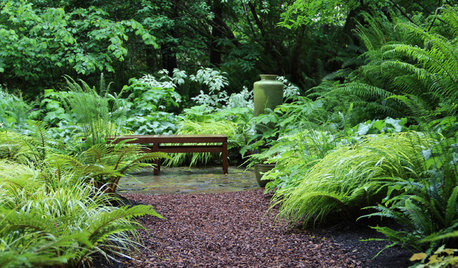
GARDENING GUIDES10 Solutions for Soggy Soil
If a too-wet garden is raining on your parade, try these water-loving plants and other ideas for handling all of that H2O
Full Story
FARM YOUR YARDHow to Get Good Soil for Your Edible Garden
The nutrients in your soil feed the plants that feed you. Here are tips on getting it right — just in time for planting season
Full Story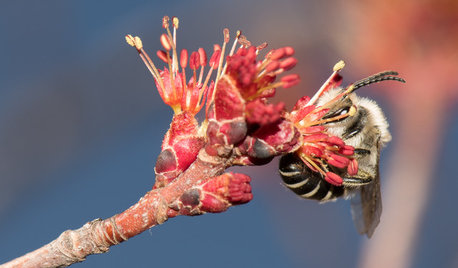
GARDENING GUIDESInvite Cellophane Bees to Your Garden by Providing Patches of Bare Soil
Look for cellophane bees (Colletes) pollinating flowering trees and shrubs in U.S. gardens this spring
Full Story
GARDENING GUIDESGardening Solutions for Heavy Clay Soils
What’s a gardener to do with soil that’s easily compacted and has poor drainage? Find out here
Full Story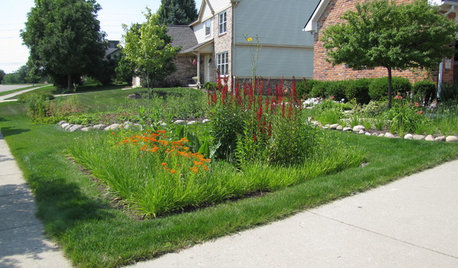
LANDSCAPE DESIGNHow to Shape a Rain Garden and Create the Right Soil for It
Learn how to grade, lay out and amend the soil in your rain garden to support your plants
Full Story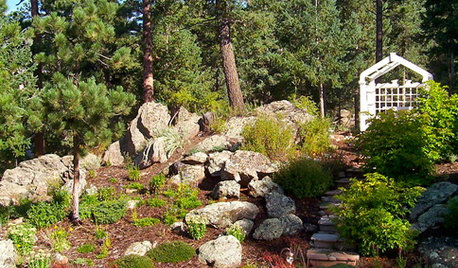
GARDENING GUIDESHave Acidic Soil in Your Yard? Learn to Love Gardening Anyway
Look to acid-loving plants, like conifers and rhododendrons, to help your low-pH garden thrive
Full Story
GARDENING GUIDESHow to Stop Worrying and Start Loving Clay Soil
Clay has many more benefits than you might imagine
Full Story
GARDENING GUIDESHouzz TV: Make a Worm Bin for Rich Soil and Happy Plants
A worm-powered compost bin that can fit under a sink turns food scraps into a powerful amendment for your garden. Here’s how to make one
Full Story
GARDENING GUIDESThe Poop Scoop: Enrich Your Soil With Good Old Manure
Get over the ick factor already — this natural super-ingredient for soil has so many benefits, you'll wonder why you ever went chemical
Full Story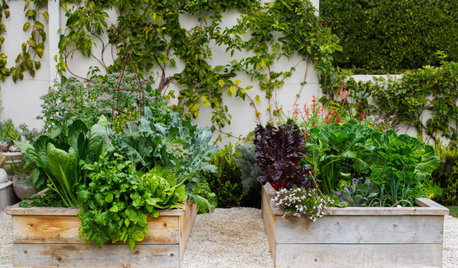
MOST POPULARHow to Start a Cool-Season Vegetable Garden
Late summer and late winter are good times to plan and plant cool-season crops like salad greens, spinach, beets, carrots and peas
Full StoryMore Discussions








NHBabs z4b-5a NH
valialeeOriginal Author
Related Professionals
Accokeek Landscape Architects & Landscape Designers · Grand Haven Landscape Architects & Landscape Designers · Roxbury Crossing Landscape Architects & Landscape Designers · Hickory Hills Landscape Contractors · Lynwood Landscape Contractors · Middletown Landscape Contractors · Mission Viejo Landscape Contractors · Round Lake Landscape Contractors · Siloam Springs Landscape Contractors · Tamarac Landscape Contractors · Whitehall Landscape Contractors · Eastlake Landscape Contractors · Shafter Landscape Contractors · Castaic Gardeners & Lawn Care · Crowley Driveway Installation & MaintenanceZachS. z5 Platteville, Colorado
digdirt2
Mindyw3
Slimy_Okra
elisa_z5
Mindyw3
elisa_z5
Mindyw3
valialeeOriginal Author
DHLCAL
Mindyw3
Mindyw3
daninthedirt (USDA 9a, HZ9, CentTX, Sunset z30, Cfa)
valialeeOriginal Author
DHLCAL
digdirt2
Slimy_Okra
loribee2
theforgottenone1013 (SE MI zone 5b/6a)
DHLCAL
slowjane CA/ Sunset 21
elisa_z5